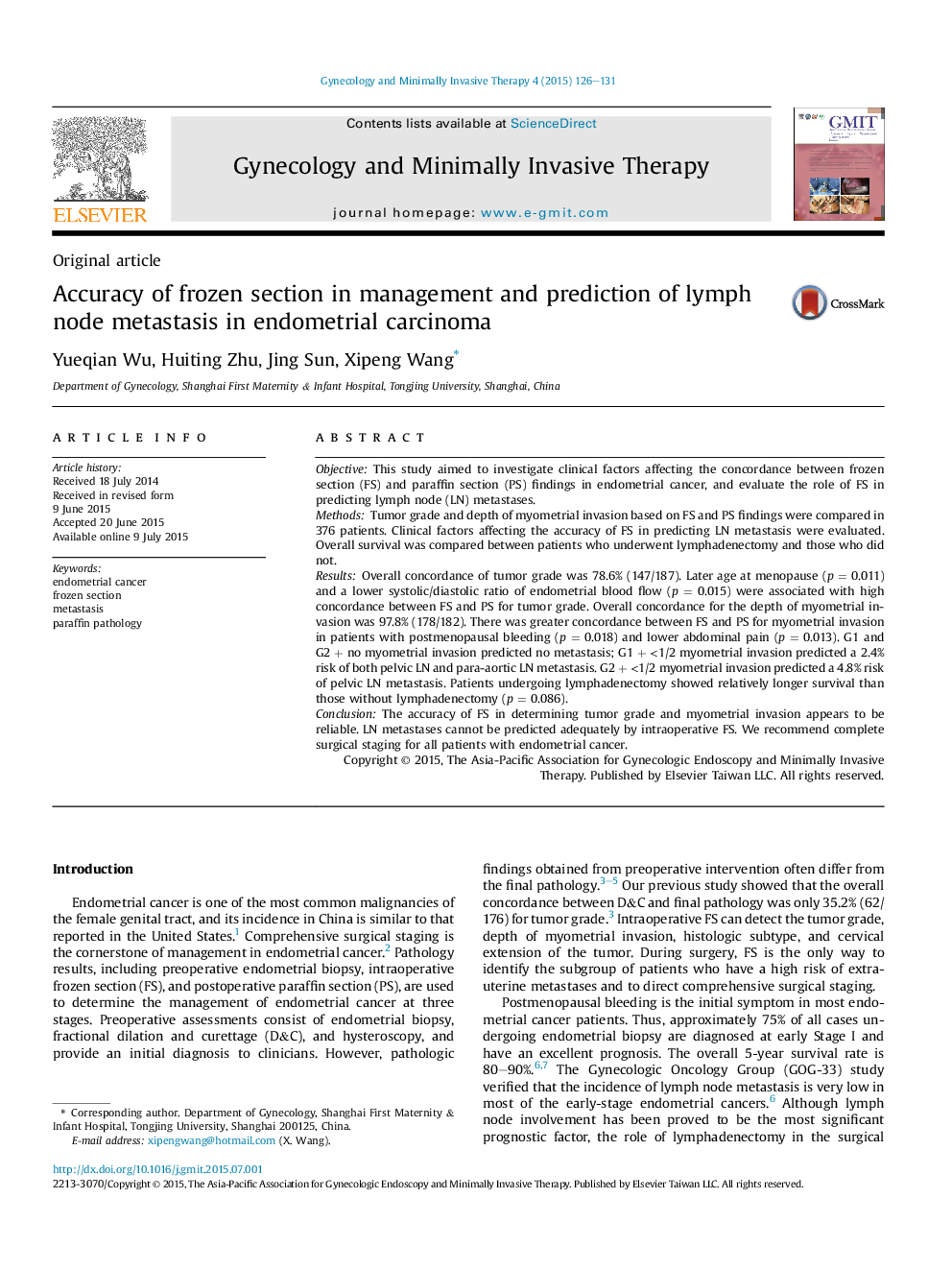| Article ID | Journal | Published Year | Pages | File Type |
|---|---|---|---|---|
| 3951999 | Gynecology and Minimally Invasive Therapy | 2015 | 6 Pages |
ObjectiveThis study aimed to investigate clinical factors affecting the concordance between frozen section (FS) and paraffin section (PS) findings in endometrial cancer, and evaluate the role of FS in predicting lymph node (LN) metastases.MethodsTumor grade and depth of myometrial invasion based on FS and PS findings were compared in 376 patients. Clinical factors affecting the accuracy of FS in predicting LN metastasis were evaluated. Overall survival was compared between patients who underwent lymphadenectomy and those who did not.ResultsOverall concordance of tumor grade was 78.6% (147/187). Later age at menopause (p = 0.011) and a lower systolic/diastolic ratio of endometrial blood flow (p = 0.015) were associated with high concordance between FS and PS for tumor grade. Overall concordance for the depth of myometrial invasion was 97.8% (178/182). There was greater concordance between FS and PS for myometrial invasion in patients with postmenopausal bleeding (p = 0.018) and lower abdominal pain (p = 0.013). G1 and G2 + no myometrial invasion predicted no metastasis; G1 + <1/2 myometrial invasion predicted a 2.4% risk of both pelvic LN and para-aortic LN metastasis. G2 + <1/2 myometrial invasion predicted a 4.8% risk of pelvic LN metastasis. Patients undergoing lymphadenectomy showed relatively longer survival than those without lymphadenectomy (p = 0.086).ConclusionThe accuracy of FS in determining tumor grade and myometrial invasion appears to be reliable. LN metastases cannot be predicted adequately by intraoperative FS. We recommend complete surgical staging for all patients with endometrial cancer.
